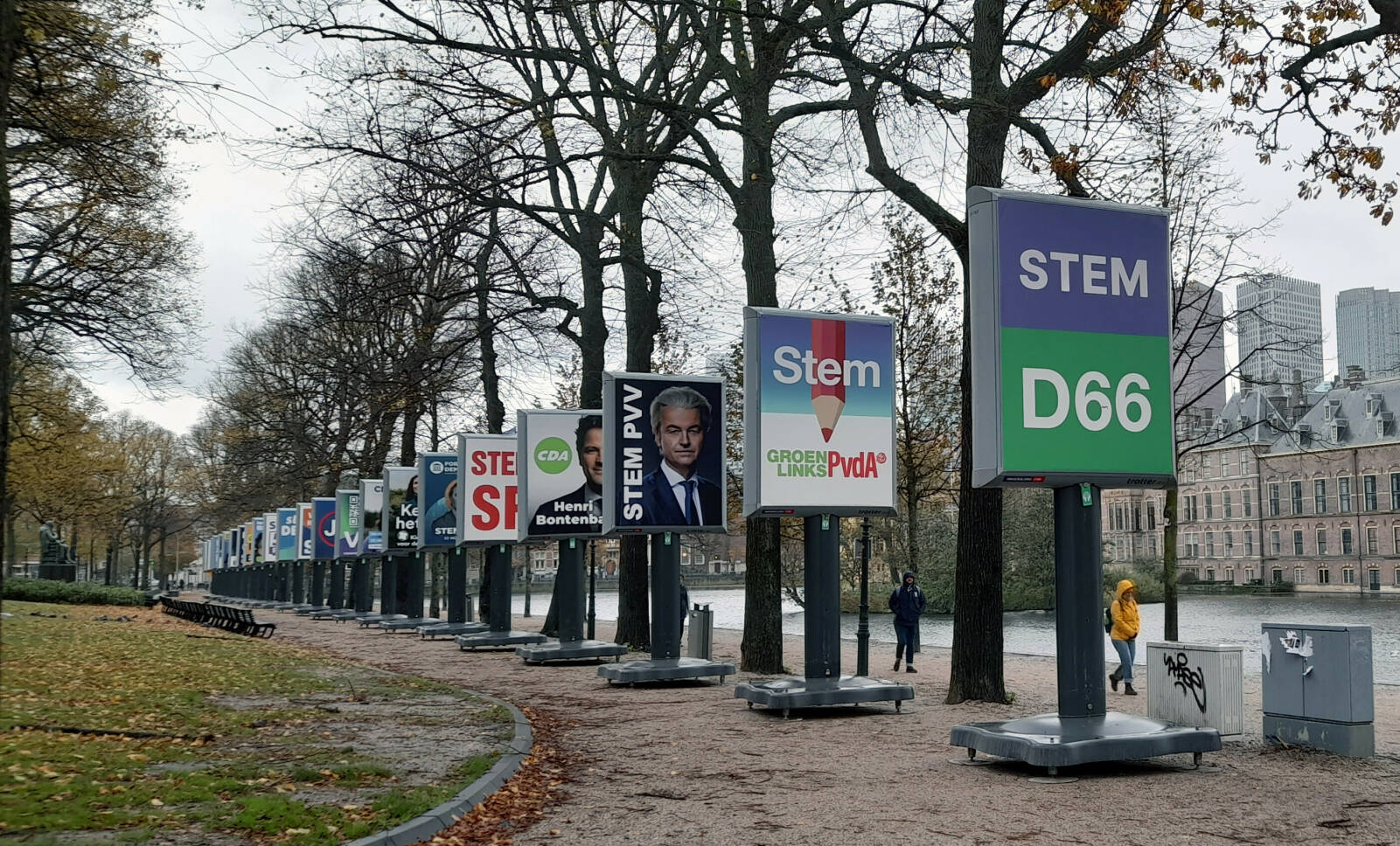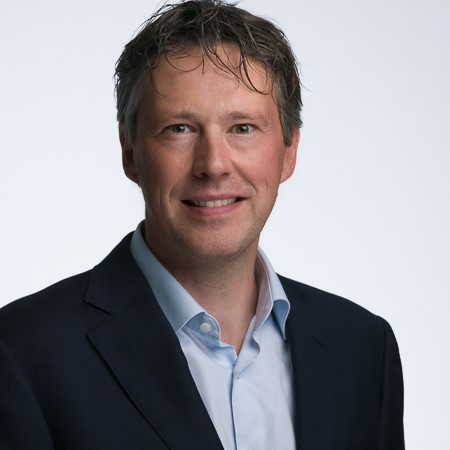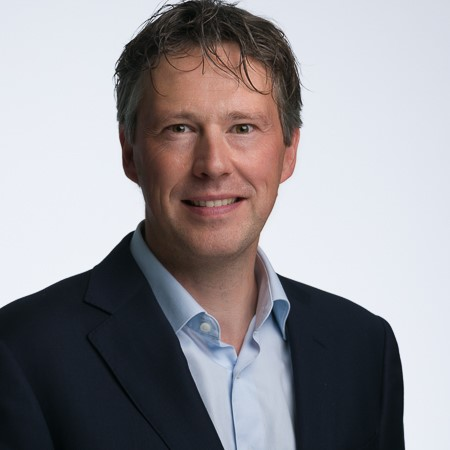
Reijrink works closely with his colleagues, who represent the interests of the port with regional authorities and at a European level, and with experts inside the Port of Rotterdam Authority. “Our public affairs work is teamwork. We coordinate closely, given that our accounts also overlap. We are expected to come to the table with our material well prepared. By collaborating, we remain a relevant and valued interlocutor for politicians and decision-makers and can represent the strategic interests of the port as effectively as possible.”
Team accomplishment
The Infrastructure and Water Management and Economic Affairs and Climate Commitees in the House of Representatives are particularly important stakeholders for the Port of Rotterdam Authority. Their portfolios are infrastructure, energy transition, sustainability, navigation on the Rhine – in short, everything that is important for the development of the HIC. Then there's for example the Agricultural Commission, which looks at the nitrogen issue. The Port of Rotterdam Authority speaks for itself with members of all these committees both individually and as a sector in collaboration with other interested parties. Reijrink: “We consider carefully which matters we talk about in The Hague, and what tone we take. There are multiple topics to be addressed in the port. We focus primarily on policy that influences the port as a whole, such as accessibility, the energy transition or the business climate in the HIC. We're committed to that. At the same we also realise that it's not only about the port of Rotterdam in national politics – that's the reality. There are other significant themes to be tackled in The Hague, such as the housing shortage and social security.”
Well-informed decisions
Reijrink and his colleagues have already made contact with the new members of the Dutch House of Representatives (Tweede Kamer). “Our region is seen as very important by politicians in The Hague, but not all members of the House of Representatives are from the Rotterdam area, not all of them know what is going on. We want to keep them informed about what's happening in the port and what the port needs, so that when there are queries or acute issues, we have short lines of communication. Politics isn't only rationality, it's also emotion. That's why we want them to experience the port during a visit so people and companies from the port can show them around and share their views on relevant political issues that have an impact on business . That has repeatedly proved to be invaluable.”
Rationality and emotion
After the resignation of government and the elections for the House of Representatives on 6 December, a new situation arose during 2023. The Public Affairs department is familiar with this situation. “Our political system works in a cycle, and this is one of those recurring moments in that cycle. We have experienced this before and are equipped to deal with it. We know the dynamic and our position in it. This time too, we will effectively highlight the interests of the port. Because the government has tendered its resignation, it is limited in what it can do but is still operational, so we are still in contact regarding ongoing affairs. Meanwhile, we also focus on key issues which should be addressed by a new government. One important subject is grid congestion, which is currently a hot topic.”
New government
The External Affairs department joined colleagues last year in investing a lot of time in making construction in the port of Rotterdam possible. Reijrink discussed nitrogen in all his talks with companies in the port, so that this subject could be addressed unanimously in The Hague. The nitrogen crisis was also the theme of the port presentations event (Havengesprekken) in 2023. “This is essential to entrepreneurs in the port, in order to be able to take investment decisions. Companies can make their individual voices heard, but together you are stronger. We lobbied to raise awareness in The Hague for the future of the HIC (Port and Industrial Complex). Our CEO, Boudewijn Siemons, spoke in the House of Representatives about the economic consequences of the nitrogen crisis. As Port of Rotterdam Authority, we are also an interlocutor for central government when considering solutions. During work visits to the port by politicians, we can demonstrate the impact of the impasse in the nitrogen crisis, with Porthos for CO2 capture and the expansion of Sif for wind at sea as striking examples.
Nitrogen crisis
This doesn't exclusively concern the interests of the Port of Rotterdam Authority. Reijrink is also General Secretary of the BOZ (Brancheorganisatie Zeehavens) and an active member of the NML (The Dutch Maritime Network). He works closely with Deltalinqs, other organisations, as well as the municipality of Rotterdam, for example. “As Port of Rotterdam Authority, we operate at the intersection of public and private interests. Therefore, we work together with others on some of the interest representation. The industry and the maritime sector come together in the collaboration with Deltalinqs and the maritime organisations represented in the NLM. That's valuable to me, because the port is a multifaceted complex with a great many interests.”
Intersection

Scroll down
As Public Affairs Manager at the Port of Rotterdam Authority, Jan-Willem Reijrink maintains and coordinates contacts with politicians in The Hague, the Dutch administrative centre and seat of government. His task is to put forward the interest representation of the Port of Rotterdam Authority to members of Parliament and government ministers. “By having conversations and sharing knowledge and points of view, we provide politicians and decisionmakers with information, so that they can take well-informed decisions.”
These are hectic times for public affairs professionals now that the formation of a new Dutch government is in full swing. Jan-Willem Reijrink represents the Port of Rotterdam Authority in The Hague. Together with his colleagues and external organisations, he is committed to seeing that policymakers are able to make informed decisions.
The voice of the port in The Hague
Meanwhile in
Reijrink works closely with his colleagues, who represent the interests of the port with regional authorities and at a European level, and with experts inside the Port of Rotterdam Authority. “Our public affairs work is teamwork. We coordinate closely, given that our accounts also overlap. We are expected to come to the table with our material well prepared. By collaborating, we remain a relevant and valued interlocutor for politicians and decision-makers and can represent the strategic interests of the port as effectively as possible.”
Team accomplishment
The Infrastructure and Water Management and Economic Affairs and Climate Commitees in the House of Representatives are particularly important stakeholders for the Port of Rotterdam Authority. Their portfolios are infrastructure, energy transition, sustainability, navigation on the Rhine – in short, everything that is important for the development of the HIC. Then there's for example the Agricultural Commission, which looks at the nitrogen issue. The Port of Rotterdam Authority speaks for itself with members of all these committees both individually and as a sector in collaboration with other interested parties. Reijrink: “We consider carefully which matters we talk about in The Hague, and what tone we take. There are multiple topics to be addressed in the port. We focus primarily on policy that influences the port as a whole, such as accessibility, the energy transition or the business climate in the HIC. We're committed to that. At the same we also realise that it's not only about the port of Rotterdam in national politics – that's the reality. There are other significant themes to be tackled in The Hague, such as the housing shortage and social security.”
Well-informed decisions
Reijrink and his colleagues have already made contact with the new members of the Dutch House of Representatives (Tweede Kamer). “Our region is seen as very important by politicians in The Hague, but not all members of the House of Representatives are from the Rotterdam area, not all of them know what is going on. We want to keep them informed about what's happening in the port and what the port needs, so that when there are queries or acute issues, we have short lines of communication. Politics isn't only rationality, it's also emotion. That's why we want them to experience the port during a visit so people and companies from the port can show them around and share their views on relevant political issues that have an impact on business . That has repeatedly proved to be invaluable.”
Rationality and emotion

After the resignation of government and the elections for the House of Representatives on 6 December, a new situation arose during 2023. The Public Affairs department is familiar with this situation. “Our political system works in a cycle, and this is one of those recurring moments in that cycle. We have experienced this before and are equipped to deal with it. We know the dynamic and our position in it. This time too, we will effectively highlight the interests of the port. Because the government has tendered its resignation, it is limited in what it can do but is still operational, so we are still in contact regarding ongoing affairs. Meanwhile, we also focus on key issues which should be addressed by a new government. One important subject is grid congestion, which is currently a hot topic.”
New government
The External Affairs department joined colleagues last year in investing a lot of time in making construction in the port of Rotterdam possible. Reijrink discussed nitrogen in all his talks with companies in the port, so that this subject could be addressed unanimously in The Hague. The nitrogen crisis was also the theme of the port presentations event (Havengesprekken) in 2023. “This is essential to entrepreneurs in the port, in order to be able to take investment decisions. Companies can make their individual voices heard, but together you are stronger. We lobbied to raise awareness in The Hague for the future of the HIC (Port and Industrial Complex). Our CEO, Boudewijn Siemons, spoke in the House of Representatives about the economic consequences of the nitrogen crisis. As Port of Rotterdam Authority, we are also an interlocutor for central government when considering solutions. During work visits to the port by politicians, we can demonstrate the impact of the impasse in the nitrogen crisis, with Porthos for CO2 capture and the expansion of Sif for wind at sea as striking examples.
Nitrogen crisis

This doesn't exclusively concern the interests of the Port of Rotterdam Authority. Reijrink is also General Secretary of the BOZ (Brancheorganisatie Zeehavens) and an active member of the NML (The Dutch Maritime Network). He works closely with Deltalinqs, other organisations, as well as the municipality of Rotterdam, for example. “As Port of Rotterdam Authority, we operate at the intersection of public and private interests. Therefore, we work together with others on some of the interest representation. The industry and the maritime sector come together in the collaboration with Deltalinqs and the maritime organisations represented in the NLM. That's valuable to me, because the port is a multifaceted complex with a great many interests.”
Intersection
As Public Affairs Manager at the Port of Rotterdam Authority, Jan-Willem Reijrink maintains and coordinates contacts with politicians in The Hague, the Dutch administrative centre and seat of government. His task is to put forward the interest representation of the Port of Rotterdam Authority to members of Parliament and government ministers. “By having conversations and sharing knowledge and points of view, we provide politicians and decisionmakers with information, so that they can take well-informed decisions.”
These are hectic times for public affairs professionals now that the formation of a new Dutch government is in full swing. Jan-Willem Reijrink represents the Port of Rotterdam Authority in The Hague. Together with his colleagues and external organisations, he is committed to seeing that policymakers are able to make informed decisions.
The voice of the port in The Hague
Meanwhile in